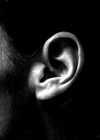Audiology features archive for June 2017
Prudent audiology
Introduction In January 2014, Professor Mark Drakeford, Minister for Health and Social Services, defined Prudent Healthcare as, “Healthcare that fits the needs and circumstances of patients and actively avoids wasteful care that is not to the patient’s benefit.” ‘Prudent’ healthcare...
Patient-centred audiological rehabilitation: facilitating and hindering factors for implementation
Introduction Patient-centred care in the health sector is a worldwide concern [1, 2]. Patient-centred rehabilitation is characterised by availability, appropriateness, preference, and timelines [3]. A consensus report by the Institute of Medicine [4] defines a patient-centred approach as ‘providing care...
Leadership challenges in the world of AQP and accreditation – learning from experience
The words ‘choice and competition’, ‘any qualified provider (AQP)’ and ‘accreditation’ have irrevocably become part of audiology jargon in the last two years in England. Commissioners who chose ‘Adult Hearing Aid Services for age-related hearing loss’ have begun the process...
Leading and managing audiology service through a social enterprise model
As these things sometimes happen, our first conversations about Social Enterprise happened pretty much by chance and in our case were a by-product of discussions about a new department having outgrown the current one. The National Health Service (NHS) Audiology...
Benchmarking for innovation in healthcare – an approach from Down Under and a gap in the National Health Service?
Benchmarking is a process of comparison between the performance characteristics of separate, often competing, organisations intended to enable each participant to improve its own performance [1]. Often, in healthcare, benchmarking is carried out by central government departments or regional agencies...
Workplace culture: observations of audiology in Northern England and Western Australia
Working with a diverse workforce and coping with transition forced me to consider the importance of cultural differences in the workplace. Only by trying to understand these differences can you understand others’ behaviour and what motivates the team. I have...
Why and what should hearing care professionals know about cognitive impairment and dementia
Good reasons to care about cognitive impairment and dementia in audiology If asking people what they fear most when getting to old age, it is cognitive decline that is named most often. This comes with the expectation of limitations in...
Inter-professional teamwork and hearing care for older adults with cognitive loss
There is growing awareness that hearing loss is linked to dementia [1]. The average first-time hearing aid user is about 70 years old. By this age, approximately 1 in 2 people have hearing loss and 1 in 7 have cognitive...
Secrets of the listening brain: what measuring the brain can tell us about hearing aid use and more
In a typical audiology clinic, on any given day, a person is waiting to see an audiologist to get a hearing aid (HA). It might have taken over 10 years to get to this point of considering a hearing aid(s)...
Cognitive spare capacity: what is it and why does it matter?
Cognition refers to thinking and memory. So why would cognition be a useful concept for ENTs and audiologists? Audition provides our main channel of communication and when we speak to each other, we want to exchange thoughts and remember what...
Cognitive effort and listening in everyday life
Dining with family members, amongst the clinking of dishes and glasses, the sounds of conversations and laughter, the husband, a user of hearing aids, misses his wife’s request to bring another bottle of wine. After a third try, the wife,...
How cognition influences hearing aid use
Introduction Hearing aids are designed to provide amplification for individuals with poor auditory sensitivity. Signal processing algorithms are designed and implemented in hearing aids to further enhance speech intelligibility and to improve listening comfort by attenuating unwanted background noise. Sarampalis...
















